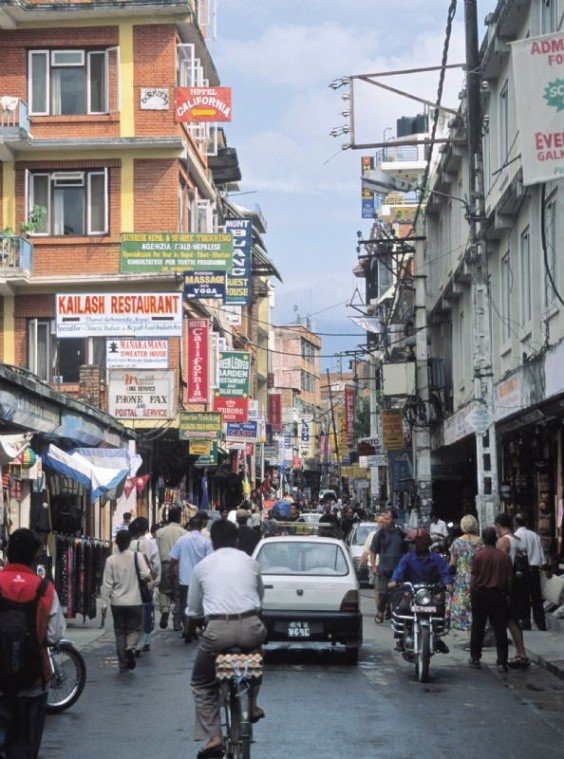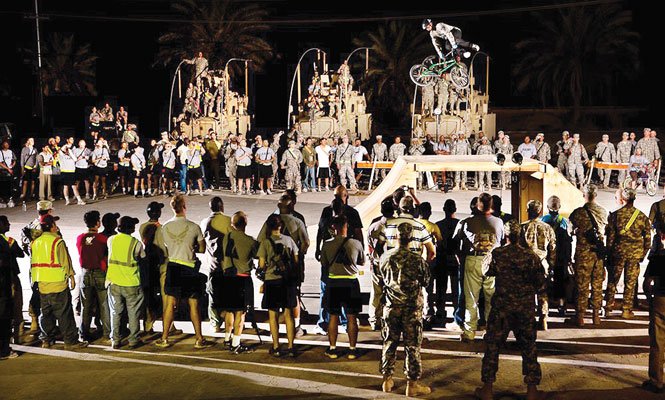We spent a day walking the streets of Kathmandu. The vibrant,
nearly manic bustle of throngs of people
– deformed beggars, barking merchants, darting taxis – moving
through the crowded streets was a riveting chaotic spectacle to a
western boy. Kathmandu is truly a third world city, capital of one
of the world’s poorest nations.
We spent a day walking the streets of Kathmandu. The vibrant, nearly manic bustle of throngs of people – deformed beggars, barking merchants, darting taxis – moving through the crowded streets was a riveting chaotic spectacle to a western boy. Kathmandu is truly a third world city, capital of one of the world’s poorest nations.
I was back at my host’s residence. We came to Kathmandu, as many westerners do, to trek in the Everest region. On an earlier trip here, my sister, with whom I traveled, befriended Shankar, our outfitter. He extended and invitation to stay with him on this trip, and we accepted.
I leaned over the railing of his third story home looking, looking. I couldn’t stop looking around in this new and strange place. Below me in one of the vacant lots, I watched an activity that confounded me. Two boys, at the end of the work day, were shoveling a small pile of rocks into a bucket and then dumping it into a much larger pile close by. The rock looked like three-fourths inch cracked rock that might be used as base rock for a road. Why is that little pile there near the large one? What were they doing?
The next morning I awoke to the sound of “crack, crack, crack.” Right away, I knew the boys were back at work, and I instantly understood last evening’s riddle. To confirm, I looked over the railing and watched these two boys, with hammers, beat on big rocks to make small rocks. They did this all day. Last evening, they had been combining their day’s work with the big pile.
This moment drove home to me what I had been seeing all around Kathmandu. There, people work all day for one purpose – to have dinner that evening. Rock cracking was not a summer job, nor a path to advancement up the some organization’s ladder. For their entire lives, these boys will work every day at some simple task simply to subsist.
For the first time, I really considered what it must be like to live a life with no hope, and I realized how much our life’s work is attached to hopes for a better tomorrow: a better house, college for the kids, a nice vacation, a comfortable retirement.
Imagine a life without that. Imagine an infinite string of tomorrows where you work only to eat and have shelter. No 401k’s, no time share in Hawaii, no promotion, just subsistence.
As I began to truly grasp this and reflect on it, the first emotion I felt was embarrassment. I was embarrassed for all I possessed, and for the trivial things in my life that I called problems. At home, I am a person of modest means, but to these people, and to most people in the world, my possessions must seem like garish excesses. If these dollar-a-day rock-cracking boys and the billions like them, could see our homes, our cars, our closets, what would they say? If they could hear our complaints, what would they think?
In this powerful moment, the notion of poverty was transformed from an abstract idea to a kick in the gut. It gave me a whole new yardstick to measure the blessings and challenges of my life. I realize that every day is Thanksgiving Day and every dinner is Thanksgiving dinner. I know in a new way that I live a life of blessings and plenty that most of the world can’t imagine. We all do.














